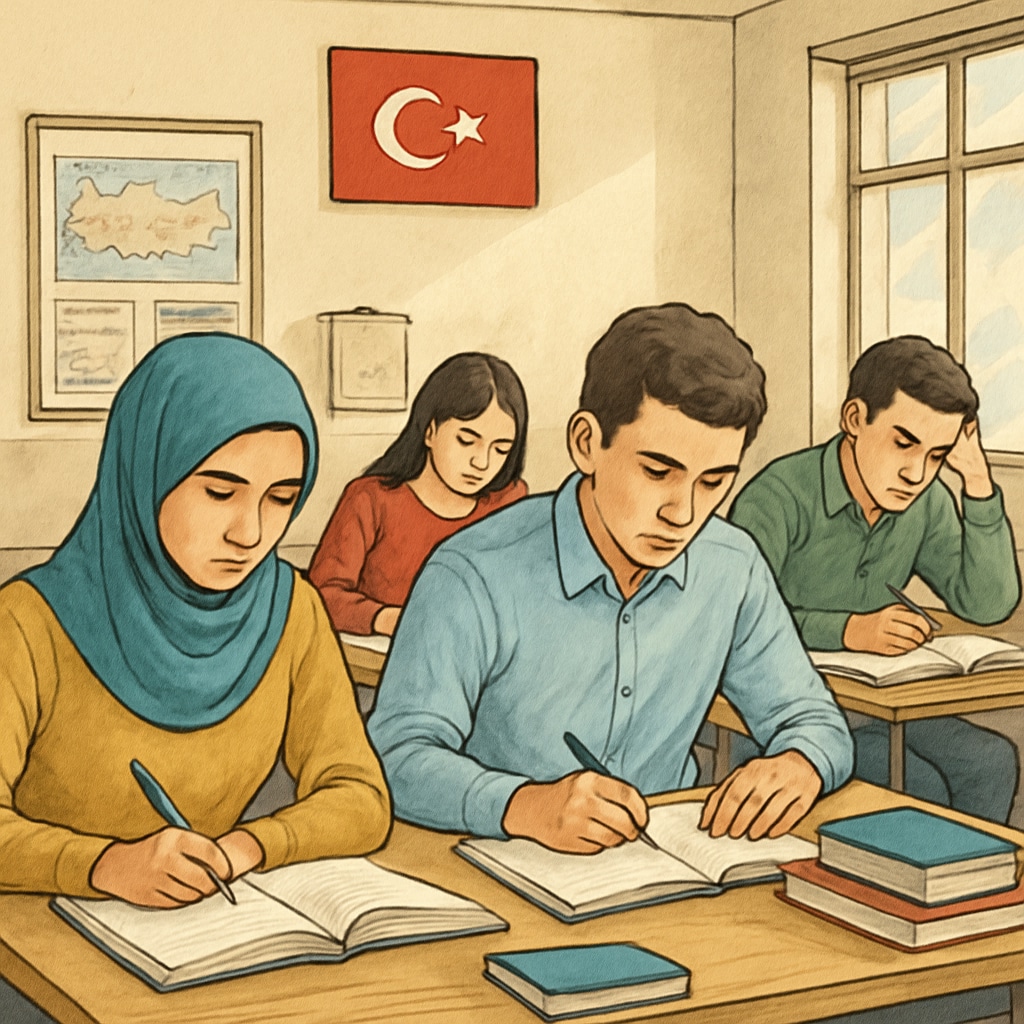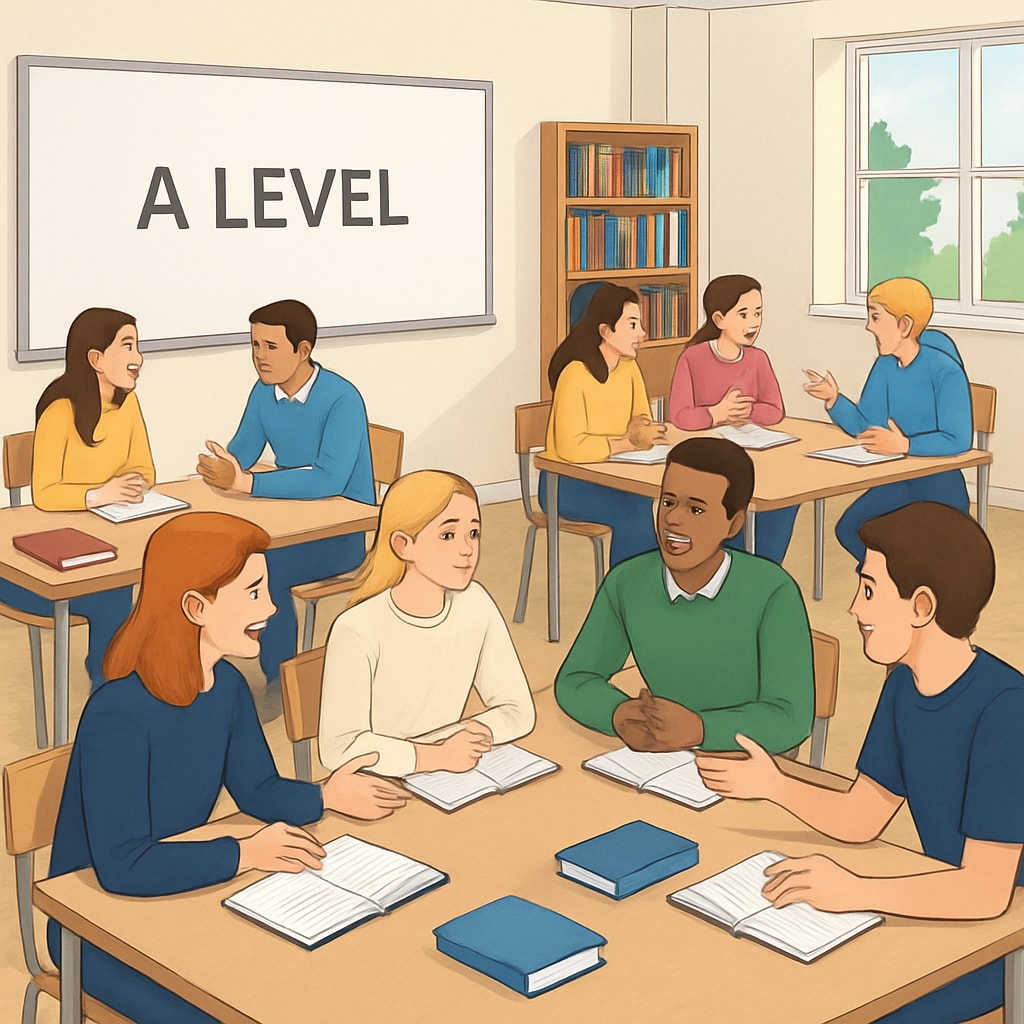Globally, education systems are shaped by their cultural, economic, and social contexts. Turkey’s centralized exam-based system and the UK’s A Levels stand as two contrasting models, each reflecting different priorities and philosophies. While Turkey’s system prioritizes standardized assessment, the UK’s A Levels emphasize student choice and specialization. This article explores the impacts of these systems on students and offers reform recommendations for Turkey to transition towards a more flexible and student-centered approach.
Exam-Based Education in Turkey: A Double-Edged Sword
Turkey’s education system is heavily reliant on centralized exams, such as the LGS (High School Entrance Exam) and the YKS (University Entrance Exam). These standardized tests are the primary determinants of a student’s academic future, influencing high school and university placements. While this method aims to ensure fairness and objectivity, it imposes immense exam pressure on students, often at the expense of holistic development.
Key characteristics of Turkey’s system include:
- Uniformity: All students are evaluated using the same criteria, regardless of their individual strengths or interests.
- Limited flexibility: The focus is on core subjects like mathematics, science, and Turkish, leaving little room for creative or vocational pursuits.
- High stakes: A single exam can determine a student’s future, creating significant stress and prioritizing rote learning over critical thinking.
While this system ensures measurable outcomes and accountability, it often neglects diverse talents and fails to prepare students for a dynamic and unpredictable job market. For example, students spend years preparing for exams rather than engaging in hands-on learning or extracurricular activities that foster creativity and problem-solving skills. As a result, many feel unprepared to navigate life beyond academics.

The UK’s A Level System: Emphasizing Student Choice
In contrast, the UK’s A Level system offers a more flexible and student-centered approach. Students typically choose three to four subjects to study in-depth during their final two years of secondary education. This system allows students to align their studies with their interests, strengths, and career aspirations.
Key features of the A Level system include:
- Flexibility: Students can select subjects from a wide range, including arts, sciences, humanities, and vocational courses.
- Specialization: By focusing on fewer subjects, students can develop a deeper understanding of their chosen fields.
- Balanced assessment: While exams play a significant role, coursework and practical assessments are also considered, providing a more comprehensive evaluation of student abilities.
This model fosters critical thinking, independence, and a sense of ownership over one’s education. For example, a student aspiring to become a doctor can focus on biology and chemistry, while another interested in the arts might choose drama and literature. The ability to tailor education to individual goals and passions not only reduces exam pressure but also enhances student motivation and engagement.

Lessons for Turkey: Moving Towards a Flexible Education Model
Turkey’s education system can draw valuable insights from the UK’s A Levels to address its current challenges. Transitioning from a rigid, exam-driven model to a more flexible and inclusive system would require gradual but strategic reforms. Below are some key recommendations:
- Introduce elective subjects: Allow students to choose subjects based on their interests and career goals, alongside core subjects.
- Reduce reliance on high-stakes exams: Incorporate alternative assessment methods, such as project work, presentations, and continuous assessments, to provide a holistic picture of student abilities.
- Promote extracurricular activities: Encourage participation in arts, sports, and community service to foster well-rounded development.
- Enhance teacher training: Equip educators with the skills to implement a more student-centered approach, focusing on mentoring and individualized support.
- Strengthen career counseling: Provide students with guidance to make informed decisions about their academic paths and future careers.
Implementing these changes would not only alleviate the exam pressure faced by Turkish students but also prepare them for a rapidly evolving global landscape. By prioritizing flexibility and personalization, Turkey can create an education system that values creativity, adaptability, and lifelong learning.
Conclusion
The contrast between Turkey’s centralized exams and the UK’s A Levels highlights the profound impact of educational structures on student outcomes. While Turkey’s system ensures standardization, it often stifles creativity and individual growth. In contrast, the UK’s model empowers students through choice and specialization. As Turkey considers reforms, adopting elements of the A Level system could pave the way for a more balanced and inclusive approach to education. Ultimately, the goal should be to equip students with not just academic knowledge but also the skills and confidence to thrive in an unpredictable future.
For more information on global education systems, visit Education Systems on Wikipedia or Education Overview on Britannica.


